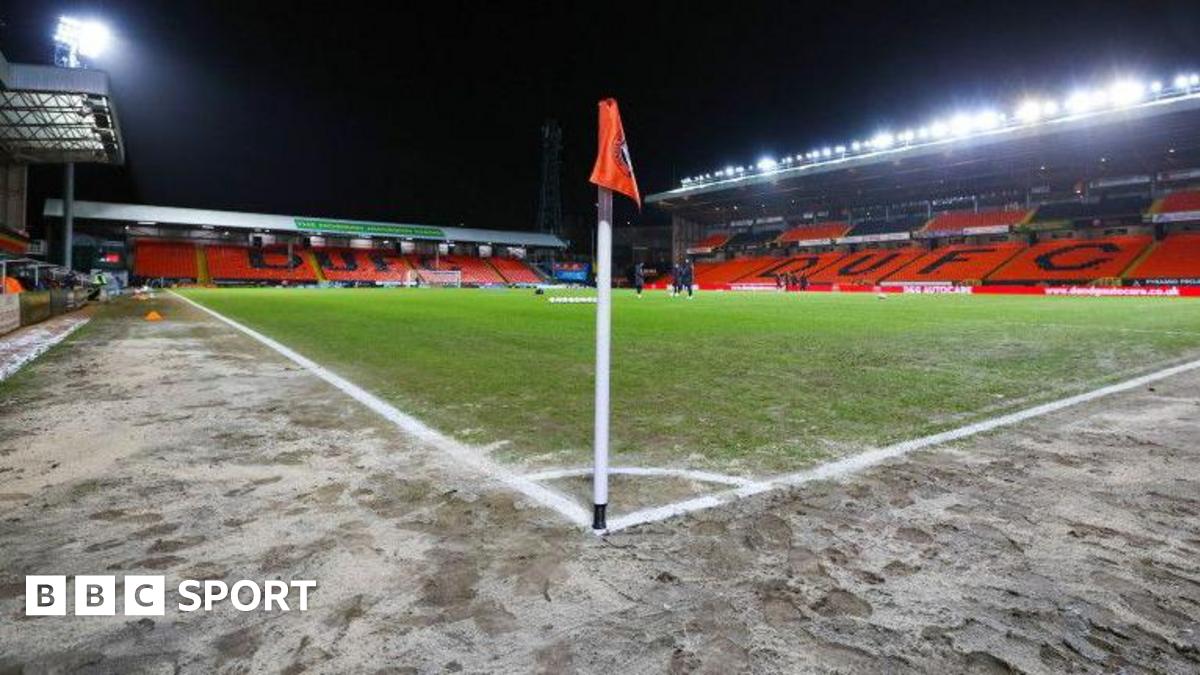Dundee United v Aberdeen postponed after Tannadice pitch inspection
Tuesday’s KDM Evolution Trophy quarter-final between St Johnstone and Championship rivals Ayr United has been postponed because of a waterlogged pitch.
However the League 1 match between Montrose and Peterhead will go ahead after a pitch inspection.
Aberdeen’s cup tie against Motherwell at Pittodrie on Saturday evening was also called off, as was their home game against Celtic last Wednesday.
“The weather across north-east Scotland has seen unprecedented levels of rainfall throughout the recent winter months,” said United on Tuesday.
“This, combined with a congested home fixture schedule and the club’s commitment to doing everything possible to fulfil fixtures, has placed significant strain on the pitch.
“A range of pitch-protection measures have taken place during this period. These actions have been crucial in enabling fixtures to proceed during prolonged periods of heavy rainfall.
“However, they have had an unavoidable impact on the visual appearance of the playing surface.
“This has been the necessary compromise in ensuring continuity across an exceptionally demanding run of home fixtures during extraordinary weather conditions.”
